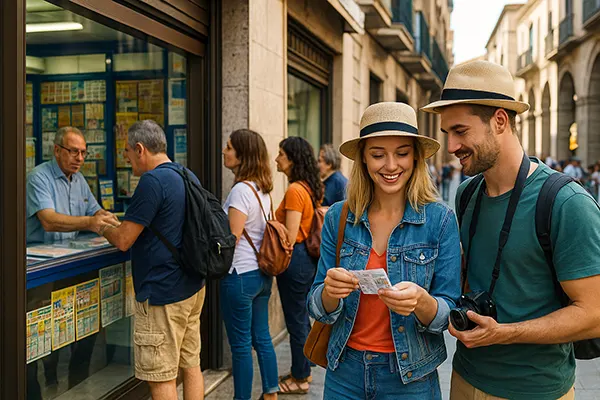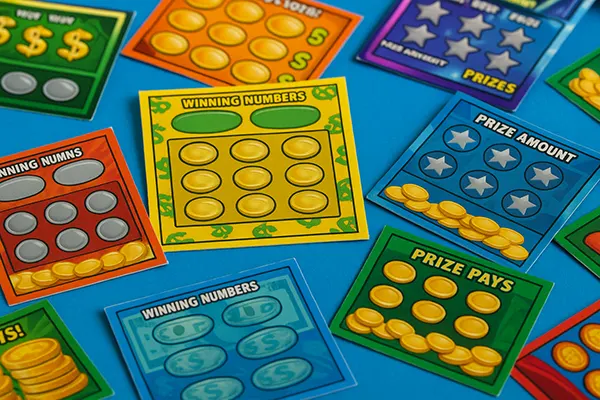
Tourism and Lotteries: Countries Where People Travel to Buy a Winning Ticket
Travelling for the sake of buying a lottery ticket might seem unusual to some, but for thousands of enthusiasts around the world, this has become a compelling form of tourism. The allure lies not only in the jackpot itself, but in the reputation of certain national lotteries, favourable tax policies, and the sheer excitement of combining a journey with the hope of life-changing winnings.
Most Popular Lottery Destinations Globally
Spain leads the way with its famous Christmas lottery, El Gordo, which distributes billions of euros in prizes each December. People from across Europe and beyond travel to Spain specifically to buy tickets from shops considered “lucky” based on previous wins. Tour operators even offer lottery-themed tours leading up to the draw.
The United States is another hotspot, particularly because of the Powerball and Mega Millions games. Foreigners often visit states with convenient retail access to buy tickets, particularly when jackpots soar above $500 million. While foreigners can participate, claiming the prize and tax implications depend on individual treaties.
In Italy, the SuperEnalotto offers some of the highest jackpots in Europe, often surpassing €200 million. Its popularity among tourists comes not only from the prize pool but also from the simple ticket purchasing system, widely available in bars, tobacconists, and airports.
Why These Countries Attract Lottery Tourists
One major factor is legal accessibility. In many of these countries, buying a lottery ticket does not require residency or citizenship, making it easy for travellers to participate. As long as the ticket is purchased in person, most jurisdictions recognise it as valid regardless of the buyer’s origin.
Another incentive is cultural reputation. For instance, El Gordo is seen more as a cultural tradition than just a lottery. Entire communities, including tourists, partake by purchasing fractions (décimos) of the same ticket number, making the draw a communal event rather than an individual gamble.
Finally, the excitement of visiting a country with a “lucky” lottery shop adds a superstitious charm. For example, Spain’s Doña Manolita kiosk in Madrid is a legend in itself, often surrounded by long queues of both locals and tourists weeks before the big draw.
Tax Regulations and Winnings for Tourists
Understanding taxation is critical for lottery tourists. In the United States, non-residents are subject to a flat federal tax of 30% on lottery winnings. In some cases, additional withholding might occur depending on state laws. Tourists must file appropriate forms with the IRS to claim their net winnings.
Spain imposes a 20% tax on winnings above €40,000, applicable to both residents and non-residents. However, due to tax treaties, some foreigners may reclaim part of this sum, though the process is bureaucratic and time-consuming. Legal counsel is often advised for substantial winnings.
Italy applies a 20% tax on lottery prizes over €500, which is automatically deducted. Foreigners can claim their winnings directly if the ticket was purchased legally. SuperEnalotto winnings can be claimed through the Italian lottery operator’s official procedures, which require identification and banking verification.
Best Practices When Buying Lottery Tickets Abroad
Always buy from authorised retailers or official lottery offices. Fake or resold tickets can be disqualified. Countries like the US and Spain have well-defined rules prohibiting third-party resales, which are often unregulated and potentially fraudulent.
Retain the physical ticket in a secure location. In many jurisdictions, possession of the original ticket is the sole proof of ownership. Losing the ticket may mean forfeiting the prize, regardless of any photographic evidence.
Be aware of deadlines. Each country has a different timeframe within which winnings must be claimed. In Italy, it’s 90 days; in Spain, it’s typically three months; in the US, it varies by state but can be as little as 180 days from the draw date.

Travel Agencies and Lottery-Focused Tourism Packages
With the growing demand for lottery experiences, travel agencies in Europe and North America offer tailored packages. These include city tours, hotel stays, and guaranteed stops at popular lottery ticket outlets. Themed souvenirs and group participation in ticket pools are also common features.
In Japan, where participation in foreign lotteries is restricted, some companies organise overseas tours primarily aimed at ticket purchasing. This form of niche tourism has gained traction especially among retirees seeking a mix of leisure and potential fortune.
These packages often coincide with major draws like El Gordo or EuroMillions Superdraws, aligning travel with the high-stakes period to maximise interest and group synergy. Participants often take part in rituals believed to bring luck, like rubbing statues or buying tickets at historically ‘lucky’ times.
Legal Considerations and Ethical Aspects
While participating in foreign lotteries is legal in many countries, exporting tickets or attempting to sell them abroad without a licence may breach both local and international regulations. Tourists should check local laws before sharing or reselling tickets across borders.
In some regions, promoting lottery participation among tourists may raise ethical questions, especially if advertised as a guaranteed opportunity for wealth. Responsible promotion and transparency are crucial for sustaining this niche tourism sector without misleading participants.
Regulatory bodies in countries like Spain and Italy have implemented strict controls over ticket sales and winnings to protect consumers, including tourists. These efforts help maintain the credibility and attractiveness of these lotteries for international visitors.
